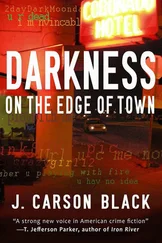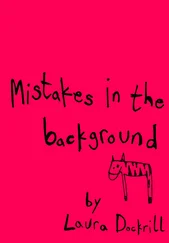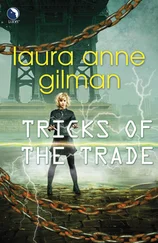“There will always be the next great opportunity, the next great adventure, and the next great man.” And this is why I come to Sally. She sees no roadblocks. Why should she? Life and love have always been willing to batter down her door.
We chat a little longer, wherein she gives me legal pointers about contesting a lawsuit and offers the services of her own attorney, which I promise to think about. Then she announces that she has an appointment and, really, I must come again when she has time to plan and we’ll do tea at the St. Regis.
Once on the sidewalk I am reminded that, while Sally is high on life and it on her, I live on the ground level where a sudden chilly rain can blow in and soak a person who didn’t think to bring an umbrella.
As I stand under the apartment awning shivering while I wait for the doorman to flag down a taxi, I wonder what sort of cosmic jokester thought it would be fun to dangle solvency before me with only one stipulation: that I deal with her.
Maybe it is the karma I deserve.
I should have been happy in my twenties and thirties being a striving career woman who worries about calories, checks her bank account obsessively because she can’t pass up purchasing that “have to have” wardrobe item, and fields her share of disappointments in love and life.
But I am Sally’s child, and whenever she swept into my middle-class upbringing, contrary to what she says, she had expectations.
Being destined to be somebody is a burden, especially if it’s someone else’s version of your life. A plan like that needs the raw material of some kind of talent. When I grew up, Madonna had not yet made an art of doing nothing well, spectacularly.
When I was sixteen Sally coaxed her gentleman friend of the moment into footing the bill for me to attend a Swiss finishing school, Surval Mont-Fleuri on Lake Geneva. For eighteen months I lived with seventy-five nice but lonely girls from six continents who only had in common their parents/guardians desire that they become the ne plus ultra of international hostesses. The course load was surprisingly heavy: forty-two hours a week of French and German, International Etiquette, Protocol, Savoir-Vivre, PR, Floral Art and Table Decoration, Enology, etc. My electives were cooking and pastry classes. And I fell in love, with baking, again.
When I graduated, and to show off my education, Sally arranged for me to prepare a seven-course meal for my benefactor and his select friends. At the end of the very successful evening, Sally said, “Just think what she’ll be able to accomplish after a term at the Sorbonne.”
But I’d had enough of formal education and said that if another sojourn in Europe was required I’d just as soon it was at Le Cordon Bleu in Paris.
My patron said he hadn’t spent twenty thousand—a considerable sum in those days—on somebody else’s little sister just so she could become a pastry chef.
Sally, bless her, came right back at him and said that was because he was too bourgeois to appreciate truly excellent cuisine. And, by the way, the “pasty chef” had inventoried his wine cellar and said it was execrable.
There was a howling fight. Shortly thereafter, Sally left for Paris. I stayed home and went to Rutgers. Then married, because Ted asked me.
Looking back, I can admit marrying Ted was a quick fix of stability. Women do that, knowing all the while that they are making a mistake, like choosing an inexpensive fun fur over a full-length mink because it looks so “right now” when waiting to have the money for the real thing that would have kept them warmer and remained timelessly chic.
What if by marrying Ted my karma is permanently skewed?
That would be so sad.
As I enter the miracle of a rainy-day cab, my heart begins to pound in my ears. And I’m holding my breath. Panic attack?
“Oh, no,” I moan, and stretch out flat on the back seat of the taxi.
“Lady, you okay?” I hear the driver ask nervously.
“Okay.” Breathe, I command myself, just breathe.
The last time this happened I was a year past the divorce and trying to cope with being completely on my own. I went to see my doctor. He said that stress can have that affect on an otherwise healthy person.
“Can’t you just give me a pill?” I asked.
“I could, but it won’t help what you’re suffering from.”
“What’s that?
He smiled kindly. “In layman’s terms, lack of a personal life. You’re a healthy woman with needs. Go out and get a life.”
Feeling the smothering sensation subside, I sit up.
The cabbie spares me a glance. “You need me to swing by an emergency room?”
“No, no thanks.”
What I need is a few spectacular moments in my life. Sally’s right. From now on, forget the steak. I’ll take the sizzle!
Once inside Penn Station, I remember to turn on my cell. Sally detests interruption by modern conveniences. I scroll through to see Sarah and Riley have each called three times, Celia twice, oh, and Harrison once.
Oh, joy! His message reminds me of what I’d forgotten. We have a date for dinner tonight.
I’ve been avoiding him since we mistakenly tumbled into bed together.
So then, this is the perfect opportunity to break things off. A chance to change my karma!
“I understand that you need your space, Liz. Still, I hoped after our last time together, we’d reached a new level of understanding.” Harrison tries to take my hand, which I avoid by reaching for my glass of Shiraz. “I’d hoped you’d let me be the one you come to when you need someone to turn to.”
“That’s nice, Harrison.” Oh, brother! What’s a woman supposed to do with a man whose idea of romance is reciting lyrics from an eighties Carpenters’ song?
Deprived of my hand he leans in to capture my gaze with his. The effect of this soulful glance makes him look slightly cross-eyed. “How about we drive down to Cape May for the weekend?”
There it is! It’s the reason I’m as tense as he is nervous. He means when are we going to have sex again?
The answer is never. Not ever.
If it had been great sex I doubt I’d remember he tooted between thrusts.
Why hadn’t I listened to my gut, which told me never bed a man as an “oh well, what the hell” response. I have only myself to blame.
“This is the weekend of the Fine Arts and Crafts Show. I have a booth to manage.” I look around in hopes of spying a waiter.
Thankfully our waiter was waiting for a cue and comes over to take our orders.
I don’t usually eat red meat but we’re at Luigi’s Trattoria, Harrison’s favorite restaurant. Frankly, It’s so-so. The marinara sauce is too tomato-y and lacks a “fresh” herb flavor. The pastas have a thick, cling-to-the-teeth gummy texture that is not what’s meant by al dente. So I order the porterhouse, medium rare. There’s only so much a cook can do to a steak.
Sarah says I’m too critical. Riley says I have an “elitist foodie bias against the proletarian need for basic food consumption.” I remind her that basic consumption includes chemically enhanced beef and chicken, and potatoes deep-fried in trans-fatty oils.
When the waiter’s done Harrison scrapes back his chair and rises. “Excuse me. I need to water the petunia.”
I smile but think jeez.
Sally’s right. “Car dealer” has a certain slippery-snake-oil-salesman image. But Harrison’s not just another guy on the lot with the pompadour and picket-fence smile. He’s “The Negotiator,” the owner of a pair of northern New Jersey Lexus dealerships.
I was still working with Ted at Talbot Advertising when we came up with that slogan. Come to think of it, I came up with it. It’s been one of Talbot Advertising’s most successful slogans. It lifted Harrison out of the field of in-your-face car ads and gave him a profile with his targeted audience. I should have left the relationship at that.
Читать дальше












